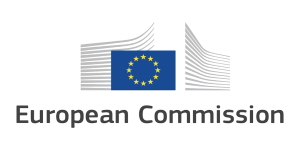The proposal will help building sustainable food systems in line with the European Green Deal

The European Commission proposes to reduce the use and risk of chemical pesticides by 50% by 2030. These are the flagship legislative proposals to follow the Biodiversity and Farm to Fork Strategies, and will help ensure the resilience and security of food supply in the EU and across the world.
The proposal to reduce the use of chemical pesticides translates our commitment to halt biodiversity loss in Europe into action. The proposal will help building sustainable food systems in line with the European Green Deal and the Farm to Fork Strategy, whilst ensuring lasting food security and protecting our health, the Commission said in a press statement.
Scientists and citizens are increasingly concerned about the use of pesticides and the build-up of their residues and metabolites in the environment. In the final report of the Conference on the Future of Europe citizens specifically requested to address the use and risk of pesticides. However, the current rules of the Sustainable Use of Pesticides Directive have proven to be too weak and have been unevenly implemented. Also, insufficient progress has been made in the use of Integrated Pest Management as well as other alternative approaches. Chemical pesticides harm human health and cause biodiversity decline in agricultural areas. They contaminate the air, the water and the wider environment. The Commission is therefore proposing clear and binding rules:
Legally binding targets at EU and national level to reduce by 50% the use and the risk of chemical pesticides and the use of the more hazardous pesticides by 2030. Member States will set their own national reduction targets within defined parameters to ensure that the EU wide targets are achieved.
Strict new rules on environmentally friendly pest control: New measures will ensure that all farmers and other professional pesticide users practice Integrated Pest Management (IPM), in which alternative environmentally methods of pest prevention and control are considered first, before chemical pesticides may be used as a last resort measure. The measures also include mandatory record keeping for farmers and other professional users. In addition, Member States have to establish crop-specific rules identifying the alternatives to be used instead of chemical pesticides.
A ban on all pesticides in sensitive areas. The use of all pesticides will be prohibited in places such as urban green areas, including public parks or gardens, playgrounds, schools, recreation or sports grounds, public paths and protected areas in accordance with Natura 2000 and any ecologically sensitive area to be preserved for threatened pollinators. This new rules will remove chemical pesticides from our proximity in our everyday lives.
The proposal transforms the existing Directive into a Regulation which will be directly applicable in all Member States. This will tackle the persistent problems with weak and uneven implementation of existing rules over the last decade. Member States will have to submit to the Commission detailed annual progress and implementation reports.
Supporting the transition:
A package of key policies will support farmers and other users, with the transition to more sustainable food production systems, including:
The transition will also be supported by the proposal on farm sustainability data, and by market developments in relation to precision farming such as sprayers using geospatial localisation and pest recognition techniques.
Delivering globally:
In line with its policy for sustainable pesticide use, the Commission will soon propose, for the first time ever, a measure that follows up on its commitment to take account of global environmental considerations when deciding on maximum residue levels in food. Imported food containing measurable residues of prohibited substances should, over time, not be marketed in the EU. This will contribute to a virtuous circle and encourage third countries to also limit or prohibit the use of these pesticides, already banned in the EU.
Concretely, the Commission will soon consult Member States and third countries on a measure reducing to zero the residues of thiamethoxam and clothianidin, two substances known to contribute significantly to the worldwide decline of pollinators. These are substances no longer approved in the EU. When the measure is adopted, imported food containing measurable residues of these two substances may – after certain transitional periods - no longer be marketed in the EU.
Commissioner for Health and Food Safety, Stella Kyriakides, stressed: “It is time to change course on how we use pesticides in the EU. This is about the health of our citizens and our planet. Through this proposal, we are delivering on our citizens expectations and on our commitments in the Farm to Fork Strategy to build a more sustainable and healthy food production system. We need to reduce the use of chemical pesticides to protect our soil, air and food, and ultimately the health of our citizens. For the first time, we will ban the use of pesticides pesticide in public gardens and playgrounds, ensuring that we are all far less exposed in our daily lives. The Common Agricultural Policy will support farmers financially to cover all costs of the new rules for a period of 5 years. No one will be left behind.”
The proposal will now be discussed by the European Parliament and the Council, in line with the ordinary legislative procedure.
Subscribe to our newsletter & stay updated.